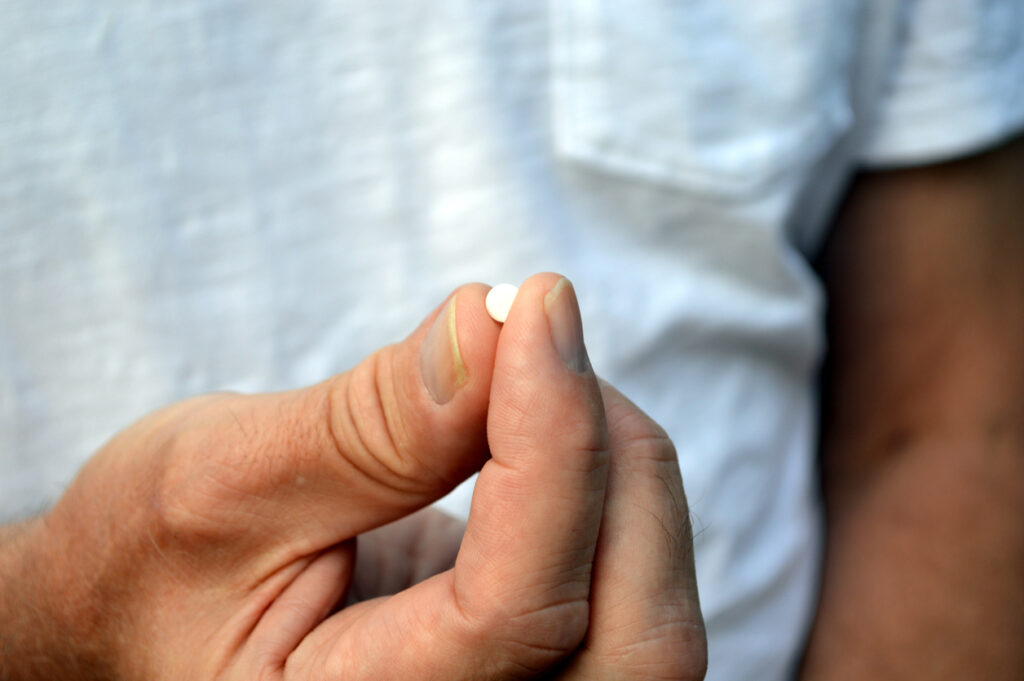
I don’t always need it, but occasionally I will take a melatonin tablet about thirty minutes before bed. If I’ve had a few days where I didn’t sleep well or have had difficulty falling asleep, I find the melatonin can help me reset my sleep routine. Our bodies naturally produce melatonin in response to the increasing darkness in the evening; it’s the hormone that signals to the body that bedtime is nearing. Sometimes when we spend too much time in front of our computer or television screens, their artificial light interferes with our biological clocks and our response for sleep is skewed. Or if we’ve had too much caffeine we can also find ourselves off kilter. Or, hormones, or kids interrupting your bedtime, or well, you know—there can be a million different things that might get us off track.
So when my sleep has suffered for a number of nights, I’ll use melatonin. I find that timing when I take it is important. For me, it takes about twenty to thirty minutes to feel sleepy after taking a dose. Once I feel that initial sleepiness set in, I know it’s time to turn off the light and settle to bed. Otherwise, if I let myself get distracted—say I want to let myself read one more chapter of a book, or I’ve gotten sidetracked by a last minute before-bed chore—I’ll be outside of that sleep window and the helpfulness of the melatonin will dissipate. Actually, I find that waiting too long to go to bed after melatonin can actually make me feel more awake, so I’m sure to be ready for sleep once I take that dose.
Like I said, I’m not advocating daily use of melatonin for sleep; I use melatonin maybe once or twice a month. I consider it a tool to get me back on track when the other tricks have failed; a small thing that helps me get to the next step.
